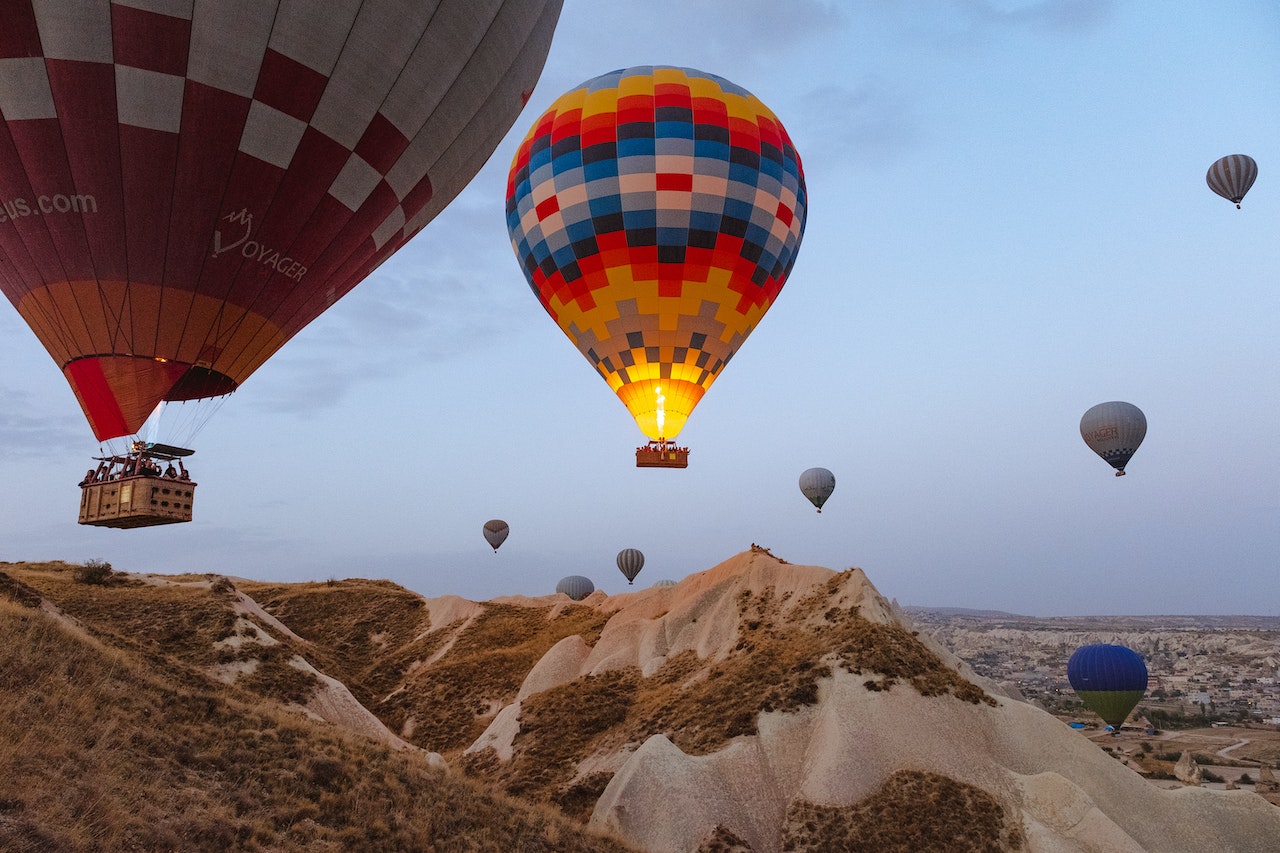How to boost your creativity, lower your stress and be happier.
Imagine standing by the bustling marketplace of an exotic city, absorbing the vibrant colors and patterns, the cacophony of strange languages, the scent of spices hanging in the air, the intricate flavors of a foreign cuisine tingling on your tongue. Each sensory detail engraves itself into your mind, igniting a fireworks display of neuronal connections. Travel, in all its multi-sensory splendor, stimulates the mind, enriches our life experiences, and cultivates a fertile ground for creative expression.
Much like the nutrients needed for a plant to grow, creativity thrives on experiences and openness. A study conducted in 2009 by Professor Adam Galinsky from Columbia Business School, unearthed the complex roots of travel’s influence on creativity. The key components being, multicultural engagement, immersion, and adaptation. The more deeply one soaks in the local culture and adapts to the unfamiliar, the greater the cognitive benefits – a marked increase in problem-solving skills and creative output.
This infusion of experiences not only bolsters our creativity but has a transformative effect on our happiness and well-being. Even the anticipation of a future journey often brings a twinkle to the eye and a spring to the step. This phenomenon, mirrored by a 2017 study, suggests that money spent on experiences, rather than physical objects, triggers lasting happiness. This study was used in Yale’s free online class, The Science Of Well-Being, which speak time and time again about how experiences bring us more joy than material things.

Stress, the ubiquitous gray cloud of our lives, often casts a shadow over creativity. By taking ourselves out of the stress-infused environment and setting foot into the realm of travel, we can effectively manage stress and negative emotions. The U.S. Travel Association discovered of travelers reported significant reductions in stress within a day of embarking on their journey. It’s akin to stepping out of a crowded, noisy room into a peaceful, serene garden – the sudden shift in atmosphere providing an invaluable perspective.
“The shortest path to oneself leads around the world.”
Hermann von Keyserling
The importance of well-being in fostering creativity is underscored by the harmful effects of stress on the brain. Stress, and the ensuing rush of cortisol and adrenaline it triggers, can constrict the brain and decrease gray matter. While these hormones play a crucial role in our fight-or-flight response, an overabundance can cause harm to our cognitive functions.
Travel, however, gifts us with the prospect of liberation from this stress. A 2018 study shed light on the somewhat poetic truth that traveling far from home can lead us closer to ourselves. This self-discovery springs from the process of understanding and assimilating foreign cultural values and norms, triggering introspective reflections. As German philosopher Hermann von Keyserling so aptly put it, “The shortest path to oneself leads around the world.”
The art of creativity blossoms through curiosity and perception. It thrives in the courage to leap into the unfamiliar, where each day unravels like a unique tapestry of unforeseen experiences and lessons. Embracing these adventures may introduce us to latent passions or allow us to conquer long-standing fears. Studies have shown a clear link between open-mindedness, often an outcome of travel, and a fresh, unique way of viewing the world.

The fabric of open-mindedness is woven with enhanced working memory and an upsurge of dopamine activity in the prefrontal cortex. This cognitive boost lends to improved decision-making and a higher state of happiness. Moreover, it induces a state of “diffuse-thinking,” which lowers stress, allowing the brain to operate in a more relaxed manner, fostering connections from different parts of the brain. This openness provides a nurturing environment for creativity to blossom.
The beneficial ties between travel and creativity have been endorsed by numerous studies. As Mark Twain famously said, “Travel is fatal to prejudice, bigotry, and narrow-mindedness.” The correlation between travel and creativity proposed by Professor Galinsky validates this idea. Immersion in a new culture and environment propels cognitive flexibility and deepens connections, paving the way for a vibrant burst of creativity.
From planning to living your summer travels, remember each journey is more than a vacation. It’s an opportunity to unleash your creativity, broaden your perspectives, and discover the nuances of your identity. Travel feeds not just the wanderlust in your soul but the artist in your mind.
Sources :
https://www.kellogg.northwestern.edu/news_articles/2009/galinskyresearch.aspx
https://journals.sagepub.com/doi/abs/10.1177/0956797614546556
https://www.sciencedirect.com/science/article/abs/pii/S0749597817301279
https://www.sciencedirect.com/science/article/pii/S0092656617300338
https://nomadsworld.com/travel-helps-creativity/

